This article was published as part of HKFP’s new affiliation with The Guardian.
“I lived here for 30 years. This has been my home. Hong Kong was my home… This isn’t how I expected to end my firm or my time in Hong Kong,” prominent human rights lawyer Michael Vidler told HKFP after a hasty exit to the UK in late April.
The 58-year-old Brit cited concerns over the Beijing-drafted national security law and “unfounded allegations” by the city’s bellicose state-controlled press.

As one of the go-to lawyers for equal rights cases since the early 2000s, he fought for minority groups – most notably the LGBT community – at a time when the topic itself was still taboo. He was also engaged by a number of high-profile pro-democracy activists.
Vidler’s untimely departure came amid a sweeping crackdown that has seen hundreds of activists arrested under the security law or other legislation and over 60 civil society groups disband. Several news outlets have shuttered and most opposition politicians behind bars or in self-exile.
His departure came weeks after two British judges resigned from the city’s highest court, citing security law concerns, and less than two months after the ex-chief of the Bar Association Paul Harris – also British – left after being summoned by police.
Unwelcome farewells
On the day of his trip, Vidler was notified by his staff that someone – allegedly from state-backed media – was waiting for him at his Wan Chai office, so he avoided going back. By the time he got to the airport, “about seven to 10 people from state media were waiting at the check-in counter and descended, taking photos and calling out questions in Chinese,” the lawyer said.

One of those questions was “are you leaving because you are a traitor?” Vidler was later told by his wife, who understands Chinese. The grilling continued until he went into the restricted area.
In Hong Kong, concerted front-page campaigns in the Beijing-backed press are often seen as a warning of looming trouble, or even a precursor to arrest.
“The fact that the state media were waiting for me and also published details of other travel plans for my family – indicates that this confidential information was obtained by state actors and passed to the state media so that they could be waiting at the airport and publish the details straight away,” he said, adding that plain-clothed immigration officers appeared to watch him board the plane.
National security fears
Speaking to HKFP via video link days after he landed in the UK, Vidler said one of the last straws was when his firm was mentioned by one of the city’s hand-picked national security judges, even though it had no link to the protest case the judge was hearing.
In February, Judge Stanley Chan noted that a defendant accused of unlawful assembly, assaulting police and possessing weapons was carrying a card printed with legal assistance contacts, including the Spark Alliance, the Civil Human Rights Front (CHRF) and Vidler & Co.

Chan said in his judgement that the “advice” or “legal guidance” on the card reflected how organised the protest was, though he said he would refrain from stating whether the organisations “were inciters as defined by the Court of Final Appeal, [and] had accessorial or inchoate liability.” He added that he would not comment on whether anyone had committed professional misconduct.
“I lived here for 30 years. This has been my home. Hong Kong was my home… This isn’t how I expected to end my firm or my time in Hong Kong.”
Michael Vidler
“I saw that as essentially a call to action by the national security police against my firm,” Vidler said. “[T]he thought that I could be associated with the crimes to which my clients were accused, merely because my client may have been found with my business card, was just horrific to me. And the fact that this was said by a national security judge was greatly concerning.”
Leaders of the Spark Alliance – which financed protester bail payments – and the now-defunct Civil Human Rights Front protest coalition, have been targeted by the police. Under the security law, imposed in June 2020, authorities can handpick judges for closed-door trials, with sentences of up to life in prison.
‘Anti-China protest lawyer’
Vidler was also labelled a “protest lawyer” by Beijing-backed media. Ta Kung Pao and Wen Wei Po, for instance, described him as as one of the “designated” lawyers used by “black-clad violent protesters.” The phrasing refers to the dress code of the frontline activists during the 2019 unrest.

Vidler said he had thought about leaving Hong Kong after his firm closed, but his plan was hastened after “open attacks” from the state-backed press.
Eventually, he was deemed a “black hand anti-China lawyer,” in reference to supposed foreign interference. They claimed his firm used to receive American money to support the protests, since Vidler & Co. was listed by Washington’s National Democratic Institute (NDI) as a company secretary.
The lawyer said his firm’s sole role was to help NDI fulfil the requirement of having an address for local correspondence under the Companies Ordinance: “[A]fter the open attacks started I thought I would have to go earlier than planned – and when those attacks escalated I left within 48 hours – informing only key people,” he told HKFP.
Following the 2014 Umbrella Movement protests, Vidler represented activist Joshua Wong, and his firm also assisted social worker Ken Tsang in his fight to identify seven police officers who assaulted him during the 79-day street occupations. But Vidler said his firm had never represented “one person at trial accused of actions” during 2019, adding that the characterisations by “Communist Party mouthpieces” was “extraordinary.”
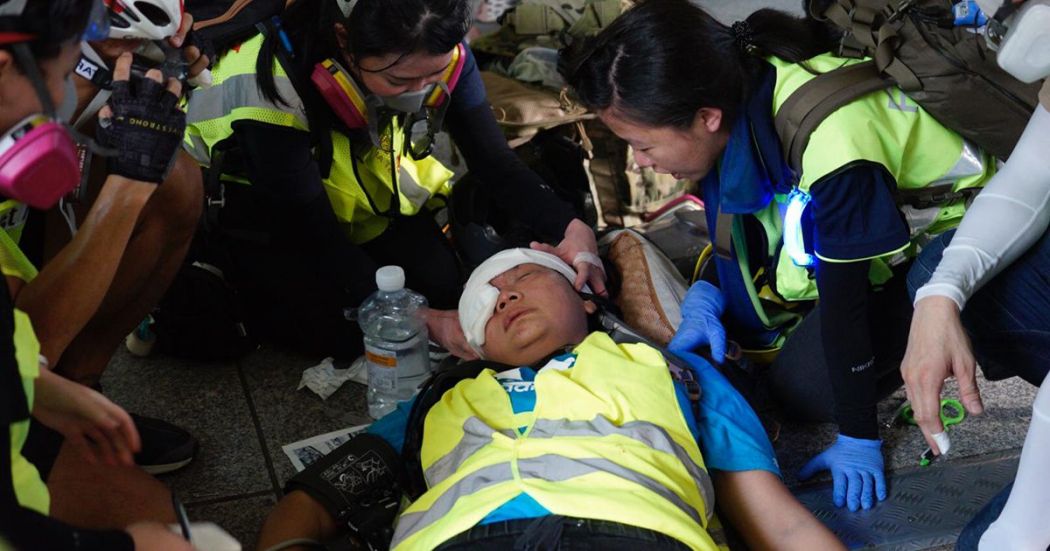
Vidler did take on the case of Indonesian journalist Veby Mega Indah, who lost an eye after allegedly being hit by a police projectile whilst covering the 2019 protests. His firm initially helped file an application to the High Court to reveal the perpetrator’s identity, but Vidler told HKFP last year they no longer represented her.
He also represented Ms. X, a woman who alleged she had been gang-raped by officers at a police station in September, 2019. The then-police chief Chris Tang said the case was being investigated as an attempt to “mislead police”, which – in turn – Vidler & Co. said was an effort by Tang to “publicly discredit” the woman.
“What I [showed] is in essence the recognition that any police force would have bad apples,” Vidler said.
When asked if he had received specific threats that prompted his departure, Vidler said he had not, but he believed “it was only a matter of time” until the authorities took action against him or his firm.
Advocacy for access to justice
Away from the protests, Vidler – who began his career at London’s Duthie Hart & Duthie – leaves a legacy of advocating for equality for minorities and the underprivileged. He served on the board of directors of both Hong Kong Unison and the Hong Kong Refugee Advice Centre.
“I set up my firm with a specific focus to give voice to the ‘little guy,’ to give people rights, [to give] an ordinary person in Hong Kong access to justice,” he told HKFP.
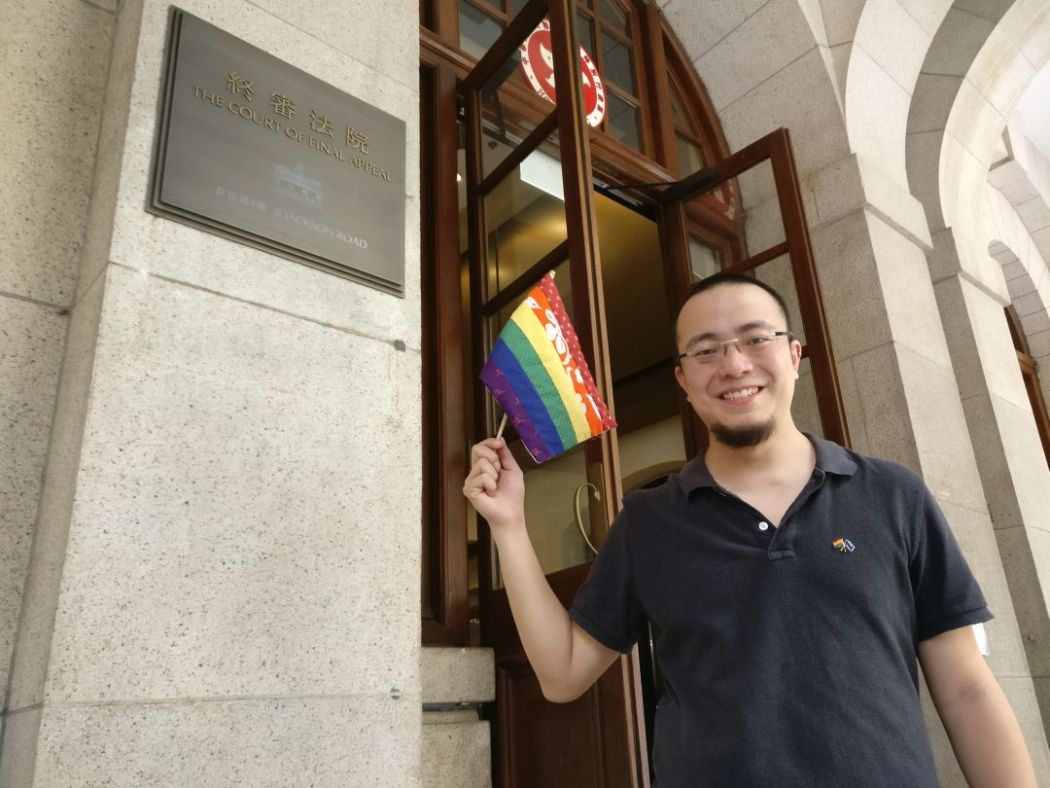
One of the underdogs he represented was Billy Leung, a gay man who arguably sparked the lawyer’s engagement in fighting for LGBT rights in the early 2000s.
In 2004, Leung and Vidler successfully challenged a law banning those under the age of 21 from engaging in anal sex, compared to age 16 for vaginal sex. The court later ruled that the higher age of consent for gay men was discriminatory and thus unconstitutional and invalid.
Vidler said he grew up in a very accepting environment and decided to do something for Hong Kong when he learned of the city’s backwardness in regards to LGBT issues: “[I]t seems to me so egregious – the law, and so discriminatory… It seemed a very important thing to do. And from then on, it just seemed natural.”
But it was not an easy journey back then, the solicitor said. “No one was interested in doing it. Don’t forget there were stigmas. The very fact that I was doing it, that I was getting these backhanded comments from bigots.”
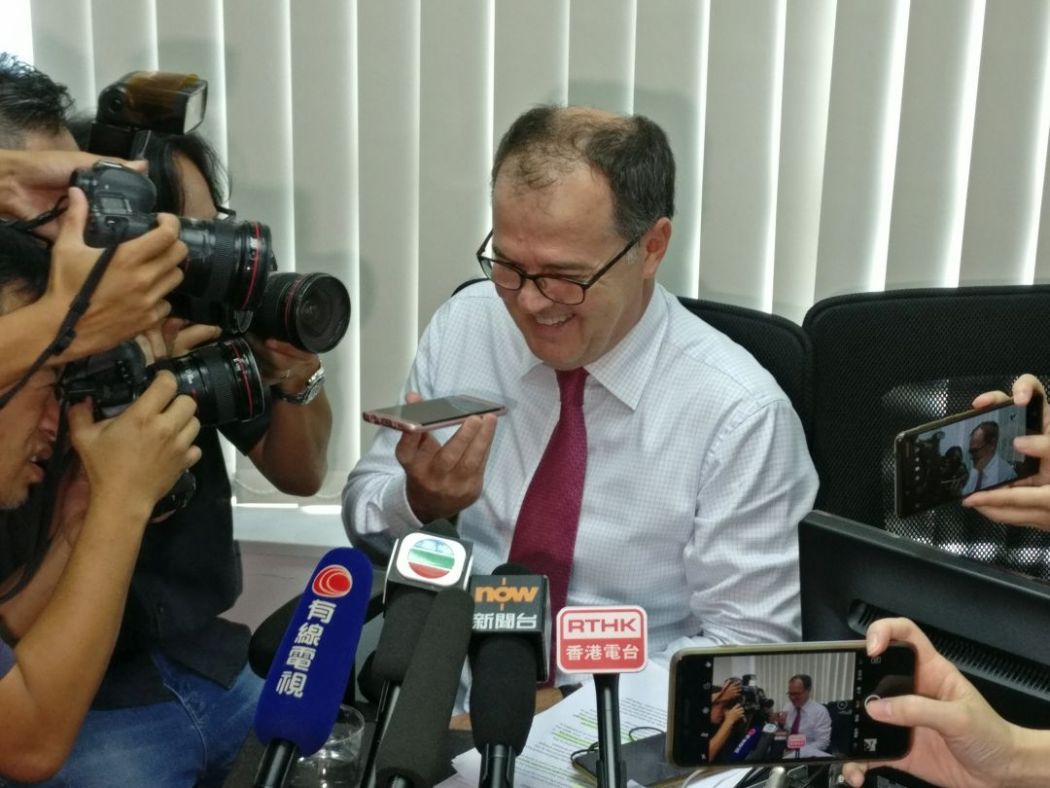
In other landmark cases, Vidler in 2013 represented “W” – a transgender woman who was barred from marrying her fiancé since her birth certificate classified her as male. Same-sex marriage remains illegal in Hong Kong but the city’s top court ruled that trans people should have the right to marry as per their identified gender, rather than the gender stated on their birth certificate.
Another victory came in 2018, when the Court of Final Appeal ruled that it was discriminatory for the immigration authorities to deny Vidler’s client, lesbian expat “QT,” a spousal visa.
The unfinished fight
Having returned to Britain, there are several cases Vidler will not be able to guide through the city’s slow-moving justice system. Among them, Henry Edward Tse and “Q” – two trans men who have not undergone full sex reassignment surgery but are fighting to change the gender on their identity card.
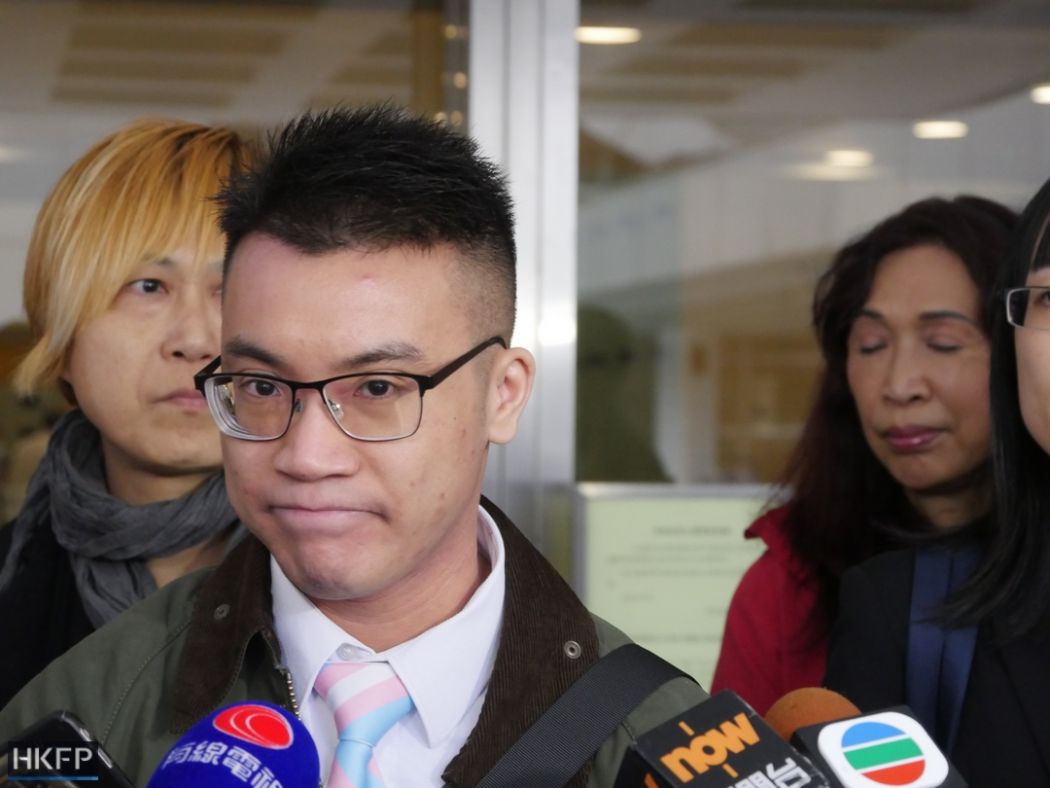
The case will now be heard at Hong Kong’s highest court with another law firm, though a date has yet to be set.
“[I have] mixed feelings – glad cases like this are progressing – after so many years of struggle to get them off the ground… but very sad that I will not be able to shepherd the cases through to the end,” Vidler said.
He was also pessimistic about the judicial system’s ability to protect vulnerable groups, adding that the political environment had “cowed” people from speaking out.
Public protests have effectively been banned in light of Covid-19 regulations, and self-censorship is rife among the city’s remaining civil groups and institutions: “I believe that the situation in Hong Kong has deteriorated to such an extent that even ‘non-political’ cases such as these will soon be a thing of the past,” Vidler said.
“Claimants will be too afraid to come forward. Firms with the necessary skills and willingness to do the unpaid work which is necessary to get such cases off the ground, will have been driven to closure by threats and intimidation or simply not assigned the cases under the new legal aid policy,” he said.
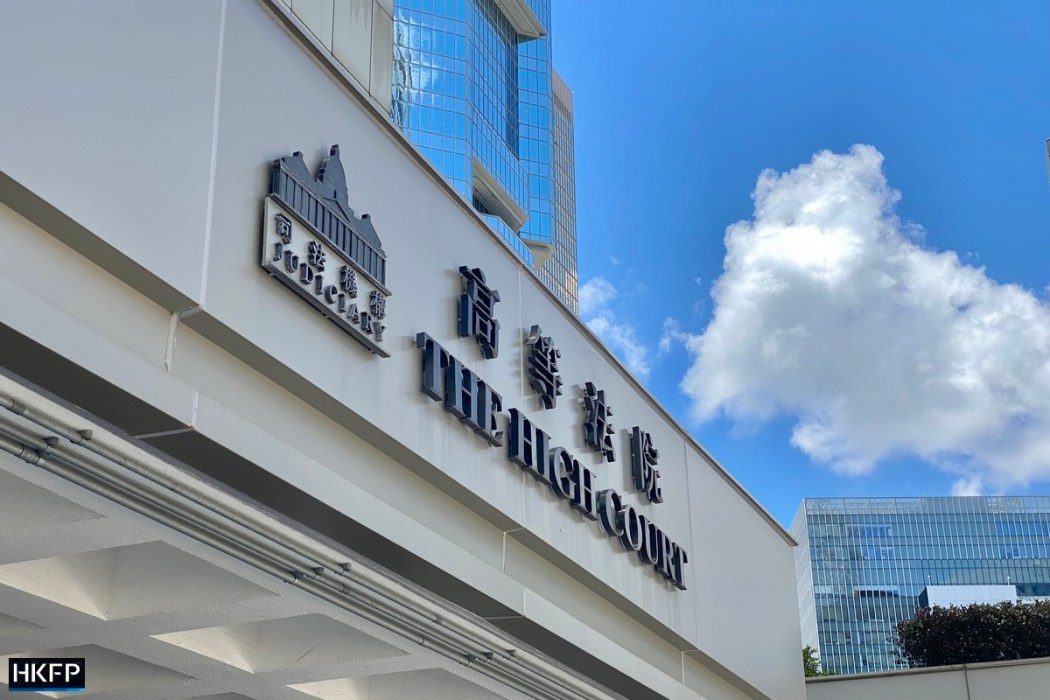
The new legal aid policy bars applicants from choosing their own legal representatives and restricts the number of judicial review cases which lawyers can take on annually. Critics have said the changes may violate the city’s mini-constitution and the Bill of Rights, which guarantee the right to choose legal representation.
Vidler said the changes sounded the “death knell” of the judicial review system, which had been a popular mechanism for bringing about change, partly because there will not be enough people with the expertise to do them. He said it had become impossible for his firm to continue what he had set out to do.
When Lord Robert Reed and Lord Patrick Hodge resigned from the top court in March, a statement said that “[T]he judges of the Supreme Court cannot continue to sit in Hong Kong without appearing to endorse an administration which has departed from values of political freedom, and freedom of expression.”

Since the 1997 handover, the UK’s House of Lords had sent judges to sit on Hong Kong’s Court of Final Appeal – their presence often seen as an indicator of confidence in the judiciary.
The other side of publicity
Becoming a part of the news, or engaging the press after a landmark ruling, was not unusual for Vidler and his firm. The case of two Saudi sisters fleeing abuse made headlines worldwide in 2019, as Vidler sought to prevent their deportation and usher them to a safe third country. But it was lesser-known cases that touched him the most.
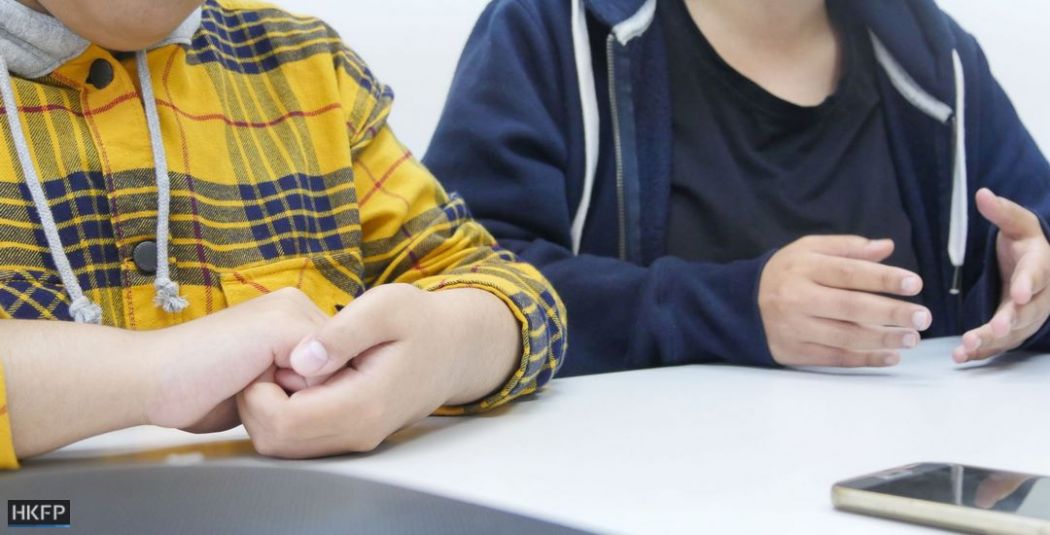
He remembered successfully helping a couple who suffered a late-term miscarriage fight for the right to access the remains of their baby for burial in 2017. At the time, the city’s hospitals treated foetuses under 24 weeks as “clinical waste.”
“It’s the little profile cases that I’ve done I’m most proud of,” Vidler said, “I just want to make sure people’s lives were improved. That’s something I am proud of.”
Vidler said that, when his decision to wind down his firm and leave Hong Kong was made public, old clients got in touch to thank him, while former adversaries from court and members of the judiciary offered kind words.
“[T]heir expressions of decency and kindness that I will take away with me as epitomising the good people of Hong Kong. This along with my belief that I have done my very best to make Hong Kong a better place.”
Support HKFP | Policies & Ethics | Error/typo? | Contact Us | Newsletter | Transparency & Annual Report | Apps
Help safeguard press freedom & keep HKFP free for all readers by supporting our team
























